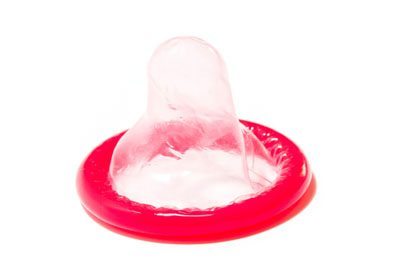If You’re Trying to Get Pregnant, Should You Pass on Lube?
A study released this week adds to a growing body of laboratory evidence that many lubricants reduce the motility of sperm. The issue of whether couples should use lube if they’re trying to get pregnant, however, is not entirely settled.

A study released this week adds to a growing body of laboratory evidence that many lubricants reduce the motility of sperm. The issue of whether couples should use lube if they’re trying to get pregnant, however, is not entirely settled.
Personal lubricants are liquids used to make the vagina or anus wetter, which prevents friction during intercourse and, in turn, makes sex feel better. Today, there are a number of different brands and types available in the aisles of drug stores and elsewhere. Most store-bought lubes are made out of water or silicon, and some of them are scented, flavored, or provide sensations like warming, cooling, or tingling. A 2011 study from Indiana University’s Center for Sexual Health Promotion recruited 2,400 women and randomly assigned them to use a water-based lubricant, a silicon-based lubricant, or no lubricant during sex and then answer questions to assess their pleasure. The study found that women who used either kind of lube reported having more pleasurable sex than women who used no lube.
But the latest study, published in this month’s issue of Fertility and Sterility, suggests that regardless of how good they feel, these products might not be good for couples trying to get pregnant. Researchers at the State University of New York Upstate Medical Center in Syracuse collected semen samples from 22 healthy donors in a test tube. They then added one of four brands of lube from store shelves—three sold under the K-Y brand, Astroglide, and a brand called Pre-Seed, which has been specially formulated for couples trying to conceive. They found that, with the exception of Pre-Seed, all of the lubricants impaired sperms’ motility—the sperm’s ability to move and to move forward, which is obviously important, as sperm have to get through the vagina, uterus, and fallopian tubes quickly in order to fertilize an egg.
The researchers also looked at four oils found around the house: canola oil, sesame oil, mustard seed oil, and baby oil. The results of sperm motility tests with these possible sources of lubrication were very mixed. Canola oil and baby oil had no effect on sperm. Sesame oil drastically reduced sperm function. Interestingly, mustard seed oil, which researcher tested because sex workers in some parts of the world believe it kills bacteria and use it as a lubricant, made sperm hyperactive for over an hour. The authors suggest more research would be needed to confirm and explain this result (and perhaps to see if it could be used by men having motility issues).
The researchers conclude that silicon- and water-based lubes should not be used by couples who are trying to get pregnant. The study’s lead author, Kazim Chohan, told Reuter’s Health this about store-bought lubes: “Couples can try them for their sexual pleasure. But if they are trying to have a baby, then they are not going to work for them.”
This is not the first study to find that lubricant and sperm are not compatible. According to a 2012 letter in the Journal of Obstetrics and Gynecology, there have been at least ten studies that have reached similar conclusions about personal lubricant and those used for surgery or other medical procedures. A 2008 study, for example, looked at Astroglide, Replens, and other commercially available lube and found that, other than those designed for couples trying to conceive, the products reduced sperm motility in a test tube. Similarly, a 2011 study found that some of the lubricants used by fertility specialists for exams, procedures, and ultrasounds were toxic to sperm.
Another study of couples trying to conceive concluded that lube did not make a difference. It asked couples who were trying to get pregnant to keep a journal of when they had sex and if they used lubricants. The study found no difference in the amount of time it took to get pregnant between those who used lubricants most of the time and those who did not.
The researchers of that study offered several possible explanations for why these results differ from those of studies that look at sperm under a microscope. They said that lubricant might not reach the upper vagina where sperm are deposited, that sperm might avoid the lubricant by swimming to the cervix really fast, or that lubricant might be allowing couples to have more frequent sex. They said more research needs to be done to see how lubricants and sperm interact under real-life circumstances.
After the latest study results were released, Rewire spoke to Debby Herbenick, a sex researcher at the University of Indiana and co-author of Read My Lips: A Complete Guide to the Vagina and Vulva. “I always tell people that if they are worried or have concerns about conceiving then by all means skip the lubricant or use Pre-Seed or one of the oils if for no other reason than that we know anxiety isn’t good for making babies,” she said. “Once you have your pregnancy, go ahead and return to your favorite lubricant if you want.”
